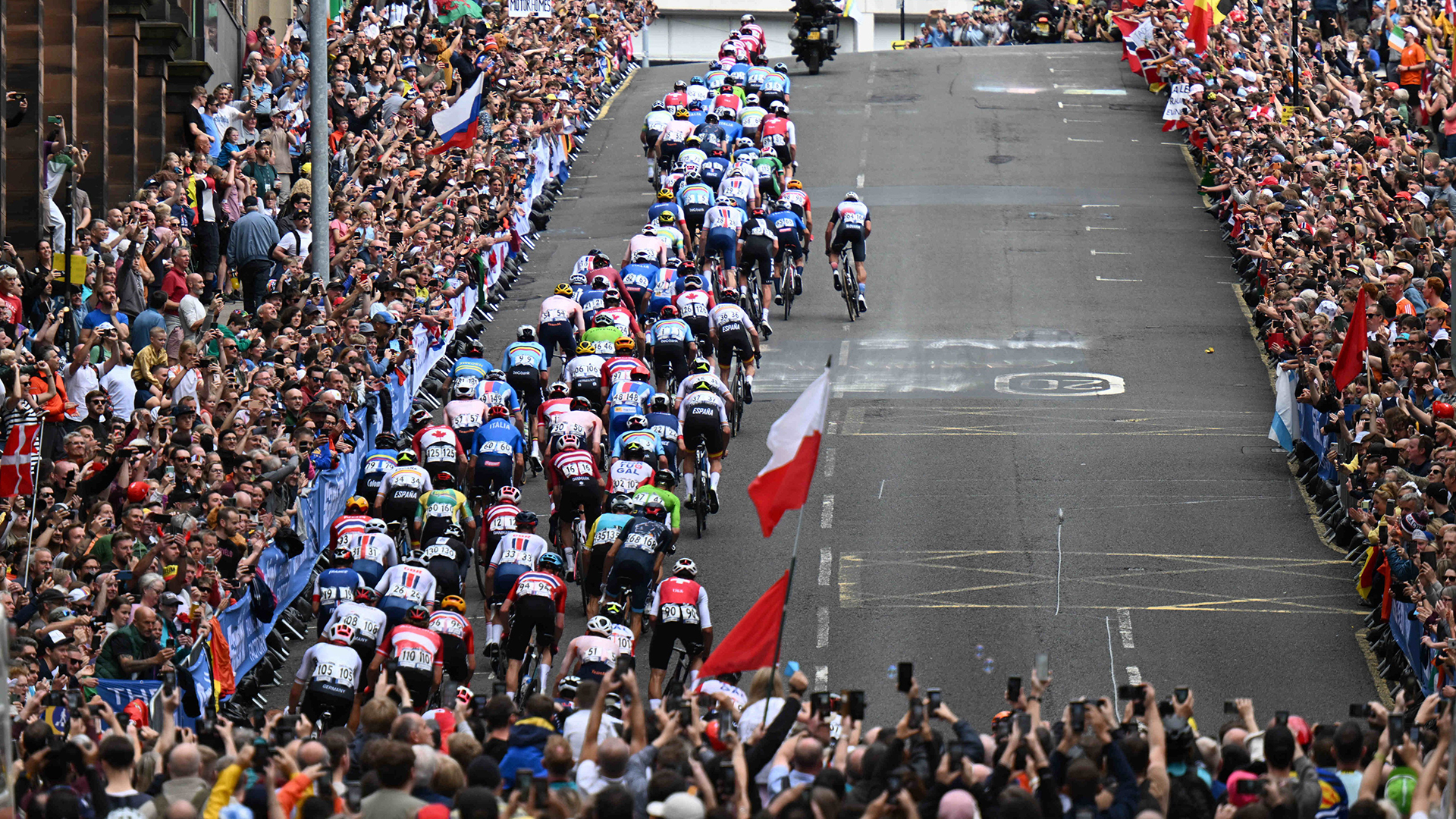Glasgow was alive with bikes this week. The place was transformed for the UCI Cycling World Championships. There were over 2,600 competitors, all gunning for world titles. Many were in the velodrome, out in the east of the city. There were BMXers in Glasgow Green and mountain bikes down in Glentress Forest, closer to the Borders.
But it was the road racing right through the place that grabbed me. There is something phenomenal about cycling road racing, particularly at elite level. It is the link between the physical and mental, at the very extremes, that fascinates.
Watching racing, particularly up close in town and city circuits, you get a sense of the energy. They really move. There is no fear, just pace. In close quarters, for us watching, there is also anticipation. Ahead of the lead riders there is a phalanx of vehicles rushing in front – the timekeeper car, race organisers’ cars, police outriders, filming motorbikes, some other cars joining the carnival, and then the lead riders, then team cars (all electric). You can feel noise starting to bubble through the crowd as the cavalcade approaches. And then they’re gone. It’s exhilarating.
Get the latest news and insight into how the Big Issue magazine is made by signing up for the Inside Big Issue newsletter
There is an interesting debate to be had around whether it is nature or nurture that makes the very best cyclists how they are. But there is something beyond that dialectic. The only big competitive single-discipline sport that compares for distance under their own steam is speed walking. There is a 50km speed walking race in the Olympics. It is mesmerising. At what point does the mind of the competitor go somewhere else? The legs maintain their curious, metronomic roll for mile after mile, the kinetic push not ceasing. But where is the mind? After 30, 40, 45 kms is there a disembodied zen calmness, a level of endorphins released that move the pain to ecstasy? Do they break through and hit a stoic nothingness? Do the great cyclists do the same as they spend hours in the saddle eating up hundreds of kilometres? How do you bypass pain with an internal mercilessness? And then stop and get up and do it all again. And how often do you get to ask yourself these questions as people in tight Lycra bolt past H&M?
The thing about the cycling in Glasgow last week was how it made thinking differently possible. When a city is closed off, when the streets are not used as they normally are, when there is a difference in the noise people behave differently, and all at once another city rises into view, one that is always there, just rarely visible. And Glasgow, a great European centre, was different, with roads at the heart of it closed for a week. It wasn’t just a few hours. In the evenings, after the races were complete, everyday cyclists rode the route, as keen amateurs do on mornings of Grand Tour stages. But last week it was more democratic, with those club members joined by parents and children, tourists hiring city bikes or just curious locals.








